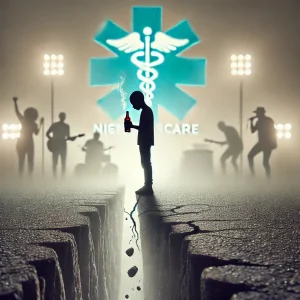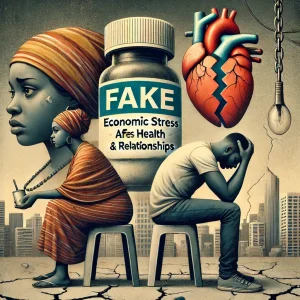Prostate cancer is a common form of cancer in men, especially among older individuals. It starts in the prostate gland, a walnut-sized organ below the bladder. While many prostate cancers grow slowly and may not cause serious harm, some can be aggressive and spread quickly. Hence, understanding its causes, symptoms, and treatments is crucial for every man.

1. Causes and Risk Factors
Although the exact cause of prostate cancer is unknown, several risk factors can increase its likelihood.
In the early stages of prostate cancer, symptoms may not be present. However, signs may appear as it advances:
Early detection can improve treatment outcomes. Standard diagnostic methods include:
4. Treatment
The treatment depends on various factors, including the cancer's stage, age, overall health, and potential side effects. Standard treatment options include:
Prostate cancer, when detected early, has a high survival rate. Awareness is crucial, so men, especially those over 50 or with risk factors, should consider regular screenings.
Remember, seeking professional medical help for any medical concern is essential.
The above article provides a general overview for awareness purposes, and only a medical professional can provide personalized advice and diagnosis. Always prioritize your health and well-being.

1. Causes and Risk Factors
Although the exact cause of prostate cancer is unknown, several risk factors can increase its likelihood.
- Age: The likelihood of risk significantly increases with age, particularly after age 50.
- Race: African-American men are at a higher risk.
- Family History: The risk of developing prostate cancer is doubled when there is a family history of the disease, specifically if a father or brother has been diagnosed.
- Genetics: Some genetic mutations might increase the risk.
- Diet: Consuming a diet rich in red meat or high-fat dairy products may raise the chances of developing health risks.
- Obesity: Obese men might be at a higher risk of getting an aggressive form of prostate cancer.
In the early stages of prostate cancer, symptoms may not be present. However, signs may appear as it advances:
- Urinary Issues: Including difficulty in urinating, weak or interrupted flow, frequent urination, especially at night, or blood in the urine.
- Pain: Discomfort in the pelvic area, bone pain, or pain during ejaculation.
- Erectile Dysfunction: Difficulty in having or maintaining an erection.
Early detection can improve treatment outcomes. Standard diagnostic methods include:
- Prostate-Specific Antigen (PSA) Test: Measures the level of PSA in the blood. Elevated PSA can indicate prostate cancer.
- Digital Rectal Exam (DRE): A doctor performs a rectal exam by inserting a lubricated, gloved finger to check for irregularities.
- Biopsy: If initial tests suggest an abnormality, a biopsy is performed where tissue samples are removed from the prostate and examined under a microscope.
4. Treatment
The treatment depends on various factors, including the cancer's stage, age, overall health, and potential side effects. Standard treatment options include:
- Watchful Waiting or Active Surveillance: Monitoring the cancer without immediate treatment. Regular PSA tests and biopsies are done to check for cancer growth.
- Surgery: A radical prostatectomy removes the entire prostate and some surrounding tissue.
- Radiation Therapy: High-powered energy can treat cancer by delivering it externally or placing it inside the body (brachytherapy).
- Hormone Therapy: Prevents cancer cells from getting the testosterone they require to grow. It doesn't cure cancer but can shrink tumours or slow their growth.
- Chemotherapy: Chemotherapy uses drugs to kill rapidly dividing cells, including cancer cells, and may be considered if hormone therapy is ineffective.
- Biologic Therapy: Helps the immune system fight cancer by using living organisms.
- Cryosurgery: Freezing prostate tissue to kill cancer cells.
- Other treatments: Including newer approaches like High-Intensity Focused Ultrasound (HIFU) or treatments targeting specific genetic mutations.
Prostate cancer, when detected early, has a high survival rate. Awareness is crucial, so men, especially those over 50 or with risk factors, should consider regular screenings.
Remember, seeking professional medical help for any medical concern is essential.
The above article provides a general overview for awareness purposes, and only a medical professional can provide personalized advice and diagnosis. Always prioritize your health and well-being.




